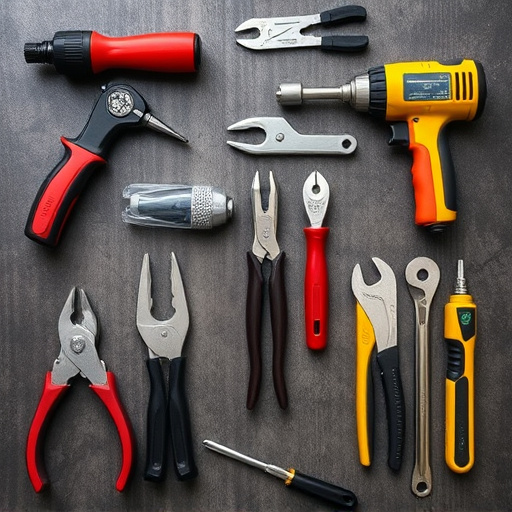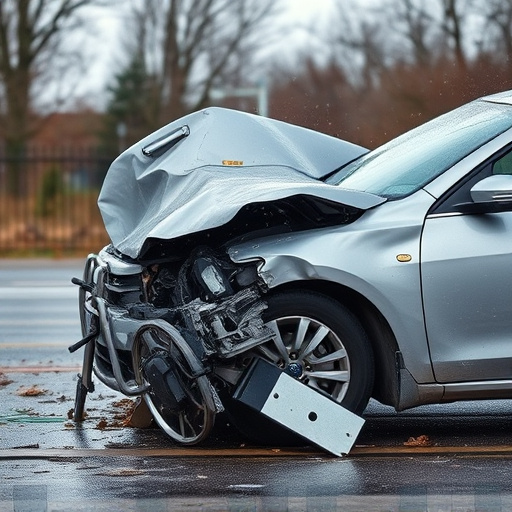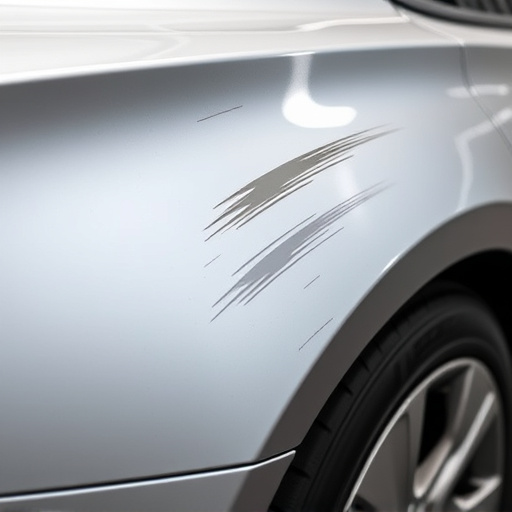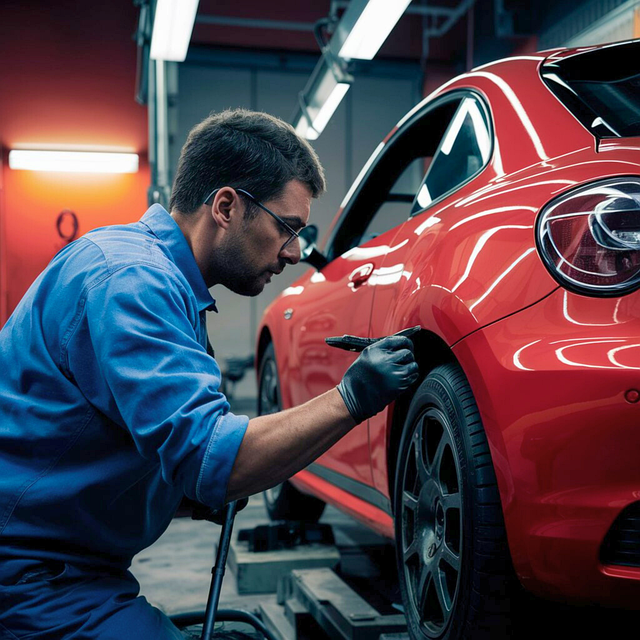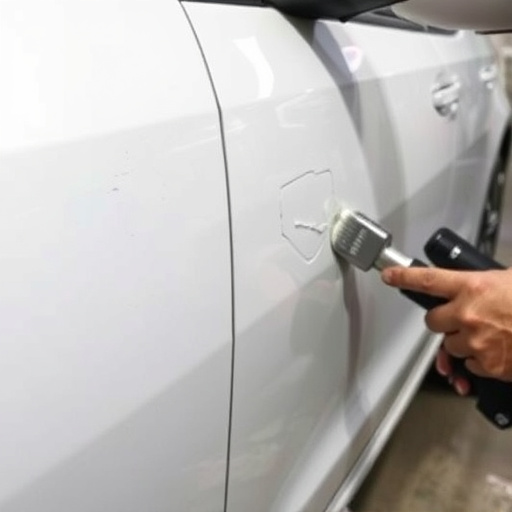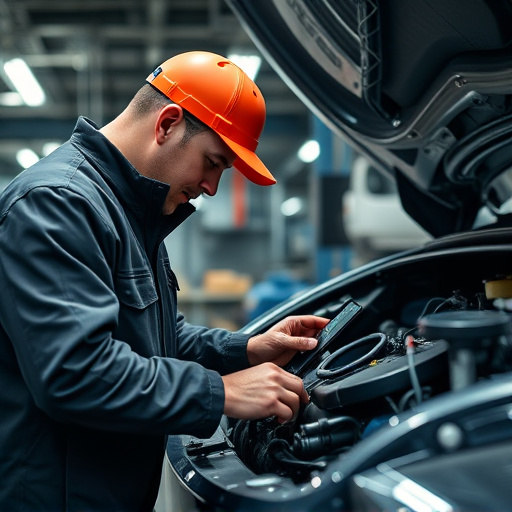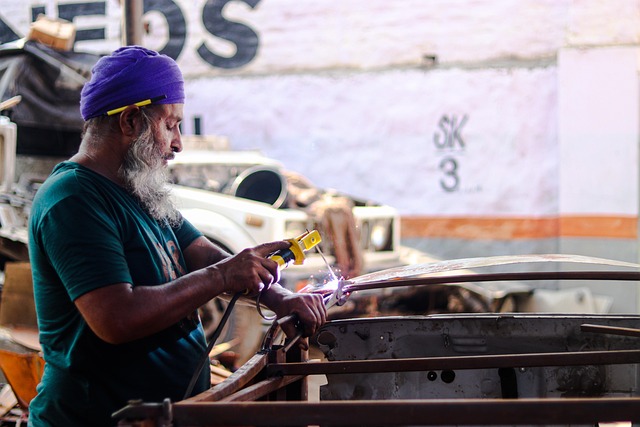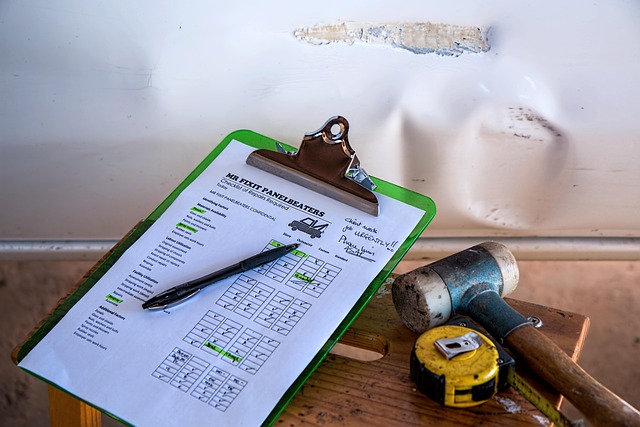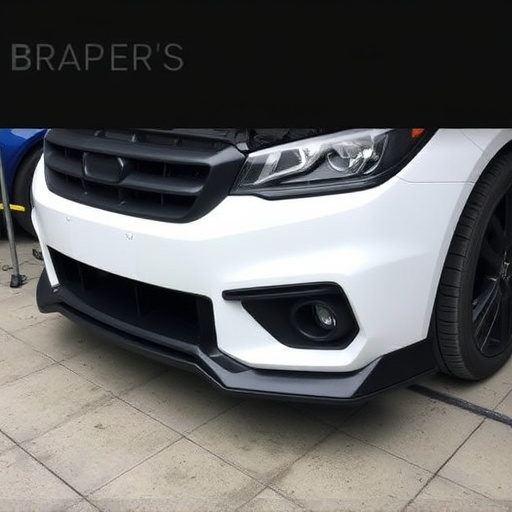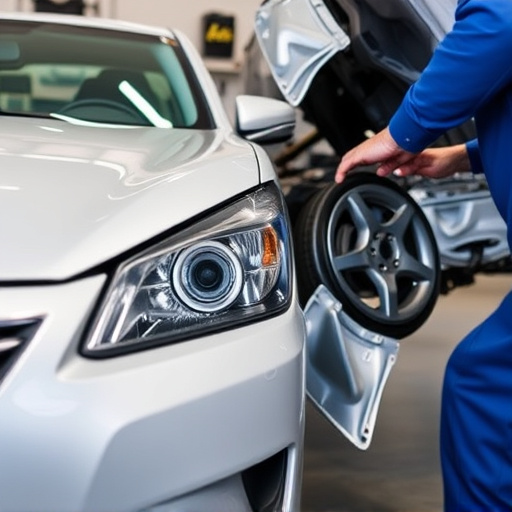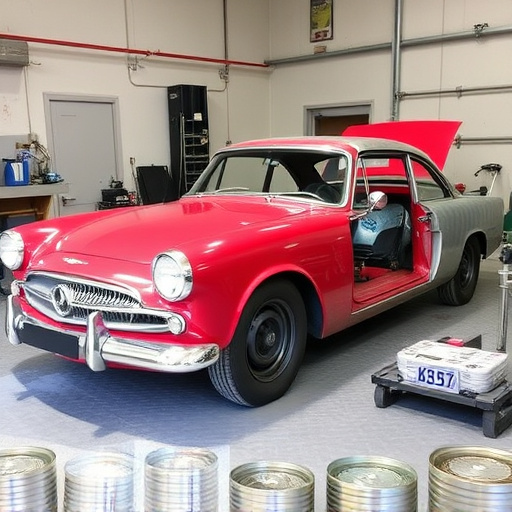Smart wearable technologies are transforming technician safety equipment in industries like car restoration and body repair. Integrating sensors, AI, and real-time data, these innovations enhance safety by detecting hazards, monitoring vital signs, and providing guided instructions, fostering proactive safety practices and boosting efficiency in dynamic work environments. This future-oriented approach ensures technicians stay safe, competitive, and adapted to industry trends.
The future of technician safety equipment is here, driven by the integration of smart wearable technologies. These innovations are revolutionizing how technicians work by enhancing protection, improving efficiency, and reducing risks. From smart helmets that monitor head impacts to sensors that detect hazardous environments, wearable tech is transforming the industry. This article explores how these advanced solutions are not just protective gear but transformative tools, future-proofing technician skills and ensuring safer, smarter workplaces.
- Revolutionizing Safety: Wearable Tech for Technicians
- Smart Gear: Enhancing Technician Protection
- Future-Proofing Skills: Wearables and Training
Revolutionizing Safety: Wearable Tech for Technicians
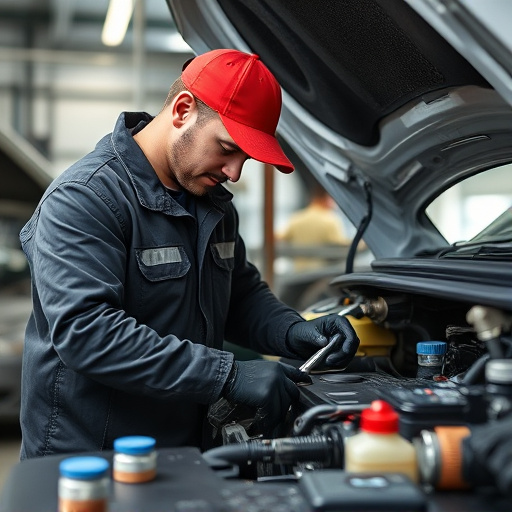
The future of technician safety equipment is here, and it’s powered by smart wearable technologies. These innovations are revolutionizing how technicians approach their work, particularly in demanding fields like classic car restoration and vehicle body repair. By integrating advanced sensors, AI, and real-time data into protective gear, auto body shops can equip their staff with a powerful tool that enhances visibility, predicts risks, and ensures adherence to safety protocols.
Imagine a technician entering an auto body shop equipped with smart gloves that detect and alert them to potential hazards like harmful chemicals or excessive heat. Advanced wearable tech can also monitor vital signs, providing early warnings for fatigue or stress that could lead to accidents. In the dynamic environment of an auto body shop, where tasks are diverse and often require handling hazardous materials or operating heavy machinery, these smart solutions promise a safer, more efficient workplace, ultimately fostering a culture of proactive safety in classic car restoration and vehicle body repair.
Smart Gear: Enhancing Technician Protection
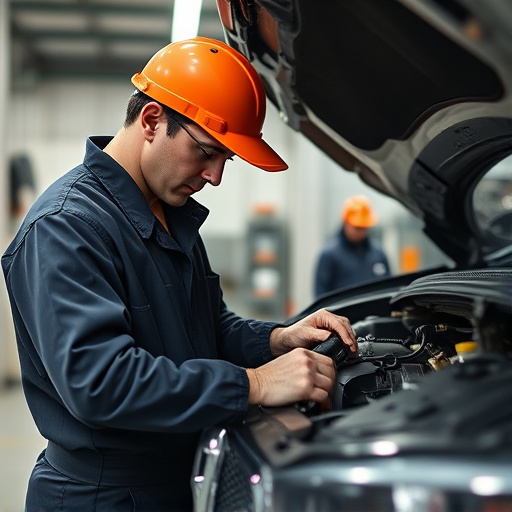
Smart Gear: Revolutionizing Technician Safety Equipment
The future of technician safety is here, and it’s smart. With advancements in wearable technology, technicians now have access to innovative gear designed to enhance their protection and efficiency. These smart devices go beyond traditional safety equipment, integrating sensors and connectivity to provide real-time data and alerts. For instance, smart gloves equipped with sensors can detect hazardous substances or extreme temperature changes, warning technicians of potential risks.
Imagine a technician working on a vehicle paint repair or car dent removal in a collision center; their wearable tech could monitor their vitals, environmental conditions, and even provide step-by-step guidance via voice prompts. This level of integration not only ensures the safety of the technician but also streamlines the work process. By embracing smart gear, the industry can foster safer practices, reduce accidents, and improve overall productivity in bustling collision centers.
Future-Proofing Skills: Wearables and Training
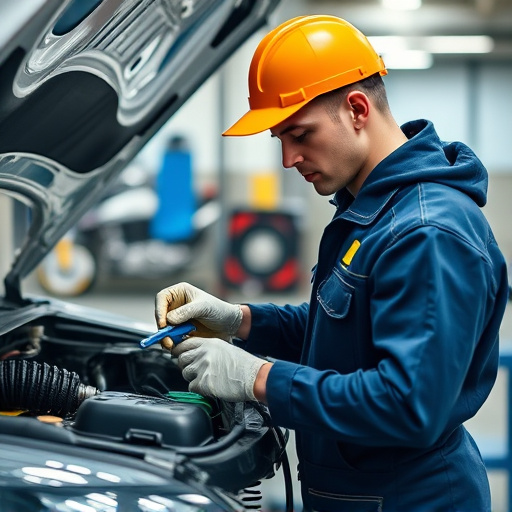
As the landscape of automotive repairs evolves with advanced technologies, future-proofing technician skills becomes paramount. Wearable smart devices offer a transformative solution for training and safety in the collision center or car dent repair workshops. These innovative tools can provide real-time data and feedback to technicians, enhancing their abilities in tasks such as auto glass repair. By integrating wearables into training programs, technicians can learn and adapt to new methods more effectively, ensuring they stay ahead of industry trends.
The integration of smart wearable technologies not only prepares technicians for future challenges but also improves efficiency and accuracy in daily operations, including specialized tasks like car dent repair. With the ability to track performance metrics, receive guided instructions, and access relevant information instantaneously, wearables can enhance safety measures across various auto repair services, from collision center operations to precision auto glass repair.
The integration of smart wearable technologies into technician safety equipment marks a significant shift in enhancing workplace safety. As we look ahead, these innovations will not only protect technicians but also revolutionize their skills through advanced training methods. By embracing this future-proof approach, industries can ensure that their employees are equipped to handle complex tasks while minimizing risks. This progressive change promises a safer and more efficient working environment for years to come.
